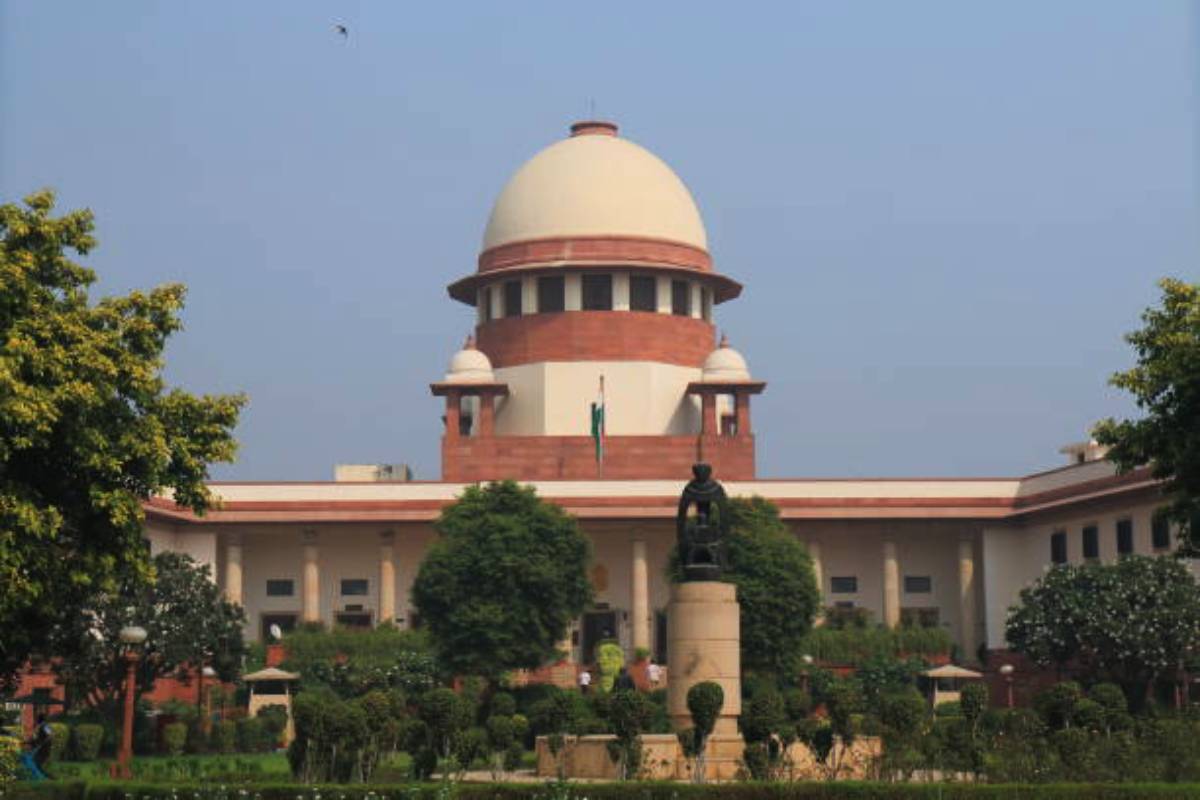India’s Got Latent: SC issues notice on YouTuber Ashish Chanchlani’s plea against FIRs
SC issues notice on YouTuber Ashish Chanchlani’s plea to quash or transfer FIR in India’s Got Latent case; tagged with Ranveer Allahabadia’s petition.
R. Sundaram, who retired as a scale 3 officer, ran to prove the authenticity of his community certificate to avail retirement benefits.

Supreme Court of India
For nearly 20 years, R. Sundaram, who retired as a scale 3 officer of the Indian Bank after a tenure of 38 years, ran from pillar to post to prove the authenticity of his community certificate to avail retirement benefits. This week, the Supreme Court held that he is entitled to the post-retirement benefits and expressed anguish that a decision was taken against him in his absence.
The top court stressed that a community certificate, whilst being an acknowledgment of history, is also a document that tries to rectify such historical injustice by becoming a tool that fabricates constitutional rights into reality.
Advertisement
A bench of Justices Aniruddha Bose and Krishna Murari said: “Any person, whose entire identity, and their past, present and future rights are challenged, must at the least be given an opportunity to be fairly heard.”
Advertisement
The bench noted that during the appellant’s tenure at the bank in Tamil Nadu, the District Collector, without conducting any enquiry, cancelled the community certificate that he belonged to the Konda Reddy community, granted to him.
Justice Murari, who authored the judgment on behalf of the bench, said: “A community certificate in cases of Scheduled Tribe communities, unlike any other piece of paper, is an acknowledgment of a person belonging to a community which has faced years of oppression.
“The Constitution of India guarantees certain rights to people from Scheduled Tribe communities on grounds of historical injustice, and for the translation of such rights from paper to real life, the community certificate in most cases becomes an essential document.”
The bench added that this certificate, whilst being an acknowledgment of history, is also a document that tries to rectify such historical injustice by becoming a tool that fabricates constitutional rights into reality.
“In such a scenario where the validity of a community certificate is put to question, keeping in mind the importance of the document and the effect it has on people’s rights, the proceedings questioning the document cannot, except in the most exceptional circumstances, be done ex-parte,” said Justice Murari.
The top court further added that in the case at hand however, such a right has been denied to the appellant (Sundaram), and hence the burden of proof on the respondents to disprove the nature of the certificate, has not been discharged.
“In the absence of the discharge of such burden of proof, this court must presume the community certificate of the appellant to be genuine,” said Justice Murari, directing bank to grant all post-retirement benefits, which were denied to Sundaram along with 6 per cent simple interest on account of unnecessary withholding of payment, from the date the payment was due to the date of actual payment.
Sundaram filed an appeal in the apex court against the final order and judgment dated February 13, 2020, in review application passed by the Madras High Court, and against order dated April 16, 2019, in writ petition of 2018 passed by the high court, whereby his challenge to the denial of his post-retirement benefits was dismissed.
The Tamil Nadu State Level Scrutiny Committee and state government counsel argued that notice was duly served on him, but he did not show up in the proceedings.
It was also argued that due to the appellant not showing up, the proceedings were adjourned, but even after the adjournment the appellant did not show up, and hence the committee had no option but to pass its decision ex-parte.
R. Balasubramanian and S. Prabakaran, senior counsel appearing on behalf of the appellant, vehemently argued that as per the directions of the high court in order dated December 19, 2017, he was to be given due opportunity to cross-examine the witnesses, and copies of all documents relied on by the respondents was to be furnished to the appellant, however, the same was not done.
It was further contended that at the time when the appellant was given the cessation order, no enquiry against him was pending, and that in the entire process he has been subject to harassment for almost 19 years.
The top court said it is appalled at the treatment given to Sundaram by the authorities concerned and noted that before applying to the post reserved for ST candidates, he supplied all documents required in support of his claim as a ST candidate, and got the documents verified and approved.
“After being given employment however, the re-evaluation of the authenticity of the documents of the appellant have been kept pending for 19 years, dangling like a sword on the appellant’s head,” said the bench.
It noted that after serving the bank for 38 years, the appellant, two days before his superannuation received his cessation order without there being any proper enquiry.
Further, on communication made to the Tamil Nadu State Level Scrutiny Committee, it was found that on the date of passing the cessation order, no case was pending against him.
“To us, a very clear pattern of harassment is visible, and there appears to be a sinister motive against the appellant and his right to pensionary benefits,” noted the bench.
Advertisement